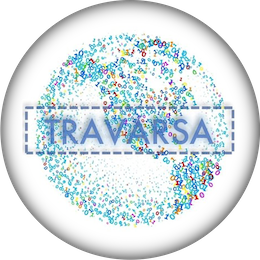Arm yourself with insights! Explore top 10 cyber threats and fortify your digital....
Read MoreHow to start your career in Digital Marketing ?

Embarking on a career as a Digital Marketing Executive unfolds a dynamic journey through the ever-evolving landscape of online promotion and engagement. In this intricate field, mastering the art of digital marketing involves navigating through a multitude of channels, strategies, and tools.
From understanding the fundamentals of SEO to crafting compelling content and delving into the realms of analytics, the path to becoming a Digital Marketing Executive is marked by continuous learning and adaptability. This guide unveils a step-by-step flowchart, meticulously crafted to equip aspiring professionals with the knowledge and skills needed to thrive in the digital marketing realm.
Digital Marketing, an Important Introduction
In the fast-paced realm of modern business, the role of a Digital Marketing Executive has become pivotal in steering brands toward online success. As businesses increasingly embrace digital platforms to connect with their audience, the demand for skilled professionals who can navigate the intricacies of digital marketing has surged.
Whether you’re a budding enthusiast seeking to carve a niche in this dynamic field or a seasoned marketer aiming to enhance your digital prowess, this comprehensive guide unfolds a strategic roadmap. From mastering foundational concepts to embracing cutting-edge tools and techniques, our step-by-step flowchart is designed to empower aspiring Digital Marketing Executives with the knowledge and skills essential to thrive in the ever-evolving digital landscape.
Comprehensive flowchart for starting a career as a Digital Marketing Executive:
Step 1: Develop a Strong Foundation
- Understand Digital Marketing Basics:
Familiarize yourself with the core concepts of digital marketing, including SEO, SEM, and social media. - Complete Digital Marketing Courses:
Enroll in courses or certifications to gain in-depth knowledge about digital marketing strategies.
Step 2: Master Essential Digital Marketing Channels
- SEO Fundamentals:
Learn on-page and off-page SEO techniques.
Understand keyword research and optimization. - SEM and Google Ads:
Explore Google Ads and understand paid advertising.
Master the creation and optimization of ad campaigns. - Social Media Marketing:
Develop expertise in social media platforms (Facebook, Instagram, Twitter, LinkedIn).
Learn to create engaging content and run paid campaigns.
Step 3: Email Marketing and Content Creation
- Email Marketing Fundamentals:
Understand the principles of email marketing. - Learn to create effective email campaigns.
Content Marketing Strategies: - Explore content creation for blogs, articles, and social media.
Understand content distribution and promotion.
Step 4: Analytics and Data Interpretation
- Google Analytics:
Learn to set up and use Google Analytics for tracking website performance. - Interpret data to make informed marketing decisions.
Social Media Analytics: - Understand analytics tools on social media platforms.
Analyze engagement, reach, and conversion metrics.
Step 5: Marketing Automation and Tools
- Marketing Automation:
Familiarize yourself with marketing automation platforms (HubSpot, Mailchimp).
Learn to create automated workflows. - Graphic Design Tools:
Explore graphic design tools (Canva, Adobe Spark) for creating visually appealing content.
Step 6: Build a Personal Brand and Network
- Create a LinkedIn Profile:
Optimize your LinkedIn profile to showcase your skills and achievements.
Connect with professionals in the digital marketing industry. - Attend Webinars and Conferences:
Stay updated on industry trends by attending webinars and conferences.
Network with professionals to expand your connections.
Step 7: Stay Updated and Specialize
- Follow Industry Blogs and Publications:
Stay informed about the latest trends in digital marketing.
Follow reputable blogs and industry publications. - Specialize in a Niche:
Choose a specific area of digital marketing (e.g., social media, SEO) and specialize.
Gain expertise to stand out in the job market.
By following this detailed flowchart, aspiring Digital Marketing Executives can systematically build a strong foundation and progress towards mastering the diverse skills required in this dynamic field. Continuous learning, staying updated with industry trends, and hands-on experience are key elements for success in the ever-evolving landscape of digital marketing.
Recommended certifications across various digital marketing domains:
- Travarsa Technology Digital Marketing Industrial Training and Certification
A comprehensive certification covering various aspects of digital marketing, including internship while working on live projects. - Google Ads Certification:
Validate proficiency in Google Ads, covering aspects like search, display, video, shopping, and measurement. - Google Analytics Individual Qualification (GAIQ):
Showcase expertise in leveraging Google Analytics to gather and interpret data for informed marketing decisions. - HubSpot Content Marketing Certification:
Focuses on content marketing strategies, including content creation, distribution, and analytics using HubSpot tools. - Facebook Blueprint Certification:
Demonstrates advanced proficiency in Facebook advertising and marketing strategies. - Hootsuite Social Marketing Certification:
Validates skills in social media marketing and effective use of Hootsuite for management. - LinkedIn Marketing Certification:
Showcases expertise in leveraging LinkedIn for marketing and advertising purposes. - Twitter Flight School Certification:
Focuses on advanced advertising strategies on the Twitter platform. - YouTube Certification:
Covers advanced YouTube advertising strategies and video content creation. - SEMrush Content Marketing Toolkit Certification:
Highlights proficiency in using SEMrush tools for content marketing strategies. - Moz SEO Essentials Certification:
Validates knowledge in essential SEO concepts and tools provided by Moz. - Facebook Certified Digital Marketing Associate:
Covers a broad range of digital marketing skills with a focus on Facebook advertising. - Content Marketing Institute’s Content Marketing Certification:
Focuses on content marketing strategy, planning, and creation. - CIM (Chartered Institute of Marketing) Digital Marketing Diploma:
A comprehensive diploma covering a range of digital marketing principles and strategies. - DMA (Data & Marketing Association) Certified Digital Marketing Professional:
Provides a broad understanding of digital marketing channels and strategies. - Google Digital Garage Certification:
Offers a range of free courses covering various digital marketing fundamentals.
Remember to choose certifications based on your specific needs, the platforms you actively use, and the areas you wish to specialize in within the field of digital marketing. Certifications not only validate your skills but also provide structured learning paths to enhance your expertise.
Conclusion:
As you conclude this comprehensive guide, remember that the world of digital marketing is characterized by its fluidity and constant evolution. The journey from foundational knowledge to specialized expertise is a continuous process, and success in this field hinges on staying attuned to emerging trends and technologies. By following the outlined flowchart, you’ve equipped yourself with a roadmap to navigate the complexities of digital marketing. Now, go forth with confidence, apply your newfound skills, and embrace the ever-changing landscape of digital marketing as you carve out a successful career as a Digital Marketing Executive.
All About Keywords !
Unlock SEO success with diverse keywords. From short-tail to industry-specific, our guide empowers....
Read MoreIntroduction to Backend Web Development
Explore the world of backend development and its core components – servers, databases,....
Read MoreTop AI (Artificial Intelligence) Tools and Frameworks
Dive into AI excellence with TensorFlow, PyTorch, NLTK, and more! Uncover their powers....
Read MoreHow to start your career in App Development ?
Unlock the path to a thriving app development career with our guide. From....
Read MorePredictive Marketing Analytics : Strategies & Benefits
Explore the future of marketing with predictive analytics. Unlock insights, optimize strategies, and....
Read More





